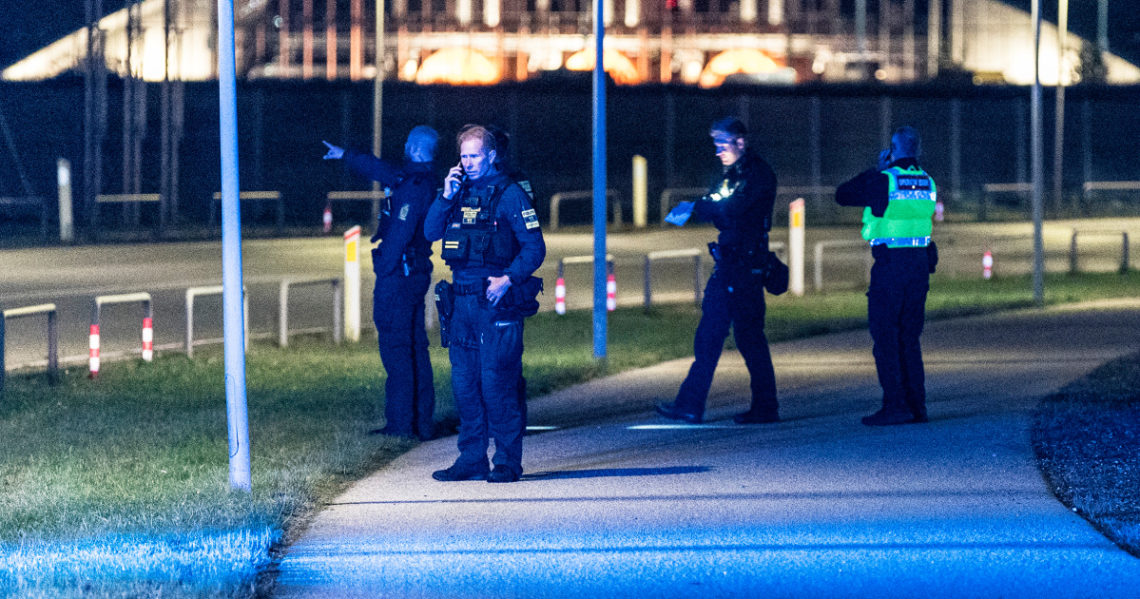Mysterious drones that forced the closure of a major European airport were part of a “serious attack,” officials said Tuesday, hours after the latest unsettling incident over the continent’s skies.
As U.S. allies weigh a tougher response to suspected Russian incursions, NATO leaders gathered at the United Nations General Assembly in New York condemned the Kremlin for a spate of “escalatory” incidents in recent weeks and vowed to defend itself.
Authorities did not immediately assign blame for the two to three large drones that shut Copenhagen Airport — Scandinavia’s largest — Monday night. But police said a hybrid attack could not be ruled out, and Prime Minister Mette Frederiksen called it “the most serious attack on Danish critical infrastructure to date.”
Norway’s Oslo airport also reopened Tuesday morning following four hours of airspace closure after a separate drone incident took place the same evening, police told Norwegian broadcaster NRK.
“I cannot rule out that it is Russia,” Frederiksen, the Danish leader, told reporters.
“We have seen drones over Poland that should not have been there. We have seen activity in Romania. We have seen violations of Estonian airspace,” she added, referring to a series of incidents in eastern Europe during September that have been blamed on Russia.
“Russia should be in no doubt,” NATO said in a statement just hours after the latest incidents. “Allies will use all necessary military and non-military tools to defend ourselves and deter all threats from all directions.”
The Kremlin dismissed what it said were “unfounded accusations” leveled each time there is an incident. It’s got to the point where such statements were “no longer taken into account,” Kremlin spokesperson Dmitry Peskov told reporters.
The drones that shut Copenhagen airport appeared to be flown by a “capable operator,” Danish police Chief Superintendent Jens Jespersen told reporters on Tuesday.
“It’s an actor who has the capabilities, the will and the tools to show off in this way,” he said, adding that no suspects had been identified and that it was too soon to tell if the events in Denmark and Norway were linked.
Officials chose not to shoot down the drones because the risk was too great because of the airport being full of passengers, the planes on the runways and nearby fuel depots, Jespersen added.
Western leaders have increasingly vowed a more aggressive defense against what they say is a carefully escalating Kremlin campaign to probe NATO’s defenses and test its resolve.
NATO is set to meet Tuesday discuss Russia’s violation of Estonian airspace, after Estonia requested consultations consultations under Article 4 last week — a mechanism that prompts urgent talks among allies
Poland “is ready to react toughly against all airspace violations,” its prime minister Donald Tusk said Tuesday on X. “In such a situation I’m counting on univocal and full support from our allies.”
Britain also promised Monday to “confront planes operating in space without permission,” as Foreign Secretary Yvette Cooper warned that Russia’s incursions risked triggering an armed conflict.
The European Union is also weighing how to create a “drone wall” along its eastern border, Lithuanian foreign minister Kestutis Budrys told Reuters news agency on Monday.
Washington’s new envoy to the United Nations, Michael Waltz, vowed Monday to “defend every inch of NATO territory” as he addressed an emergency U.N. Security Council meeting over the incursion into Estonia.
NATO has already launched Operation “Eastern Sentry” earlier this month to bolster defenses along Europe’s eastern flank.
Meanwhile, Ukrainian President Volodymyr Zelenskyy landed in New York Monday for what he said would be an “intense week” of diplomacy, as he tries to drum up support for new efforts to punish the Kremlin and turn rhetoric into action.
“We are doing everything to stop the war,” he wrote on X Tuesday, adding that he had two dozen meetings scheduled.
The post Drones shut Copenhagen Airport in ‘serious attack’; NATO weighs tougher Russia action appeared first on NBC News.




